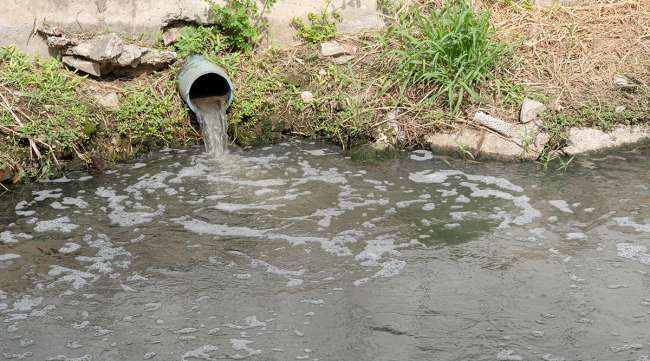Senior Reporter
EPA Proposes Tougher Rules to Monitor Runoff at Transportation Facilities

[Stay on top of transportation news: Get TTNews in your inbox.]
The Environmental Protection Agency is seeking comments on proposed changes aimed at expanding and strengthening its permitting authority to regulate activities at motor freight transportation facilities, and other industrial sectors, that are often exposed to stormwater runoff.
Stormwater runoff may discharge pollutants into nearby bodies of water or storm sewer systems.
The agency said the major changes in its upcoming five-year Multi-Sector General Permit for Industrial Stormwater Discharges are based on terms stipulated in a settlement agreement of recommendations from the National Academies of Sciences, Engineering, and Medicine’s National Research Council, and from meeting with the regulated community and environmental group stakeholders.
Although EPA runs the stormwater programs in Massachusetts, New Hampshire, New Mexico, Indian lands, the District of Columbia, and U.S. territories, several states, including California, have their own permit requirements that use the EPA requirements as a model.

Kedzie
Stormwater permits are generally required for transportation facilities that perform vehicle maintenance, repairs, equipment cleaning, deicing, fueling, and washing if activities are conducted outdoors and are exposed during storm events, said Glen Kedzie, energy and environmental affairs counsel for American Trucking Associations.
Depending on the changes to the new federal requirements, state stormwater programs may need to amend their current standards to include, for example, mandatory quarterly sampling of stormwater runoff, Kedzie said.
“Right now, they’re allowing visual inspections,” Kedzie said. “Now they’re going to be requiring for most sectors, including our sector, quarterly monitoring. Now, you’re going to have to pay for this, whether you’re actually polluting or not. This has the potential for more onerous requirements in their stormwater permits.”
EPA said the draft proposal would streamline and simplify language throughout the permit process to present the requirements in a generally clearer and readable manner, allow eligibility and authorization-related changes, and require that permit holders post a sign of permit coverage at a safe, publicly accessible location in close proximity to the facility.
Compare each of the presidential candidates' plans for addressing America's infrastructure needs. See our Candidate Infrastructure Tracker.
Also, the changes could require that permit holders consider implementing enhanced measures for facilities located in areas that could be impacted by stormwater discharges from major storm events that cause extreme flooding conditions.
The agency’s current five-year stormwater permit regulation expires June 4.
EPA also is requesting comment on viable alternative approaches to benchmark monitoring for characterizing industrial sites’ stormwater discharges, quantifying pollutant concentrations, and assessing stormwater control measure effectiveness.
Comments on the notice must be received on or before May 1, the agency said.
In a related development, the California Trucking Association has warned California motor carriers that they are increasingly becoming targets of lawsuits and state administrative penalties for not having the permits.
California is one of the states that has chosen to participate in enforcing the EPA requirements.

“We have seen lawsuits target small ‘mom and pop’ operations as well as larger multifacility companies,” CTA wrote in its March-April edition of Caltrux. “Many of these facilities have ended up settling out of court for amounts ranging between $50,000 and $100,000. Costs for facilities choosing to fight the lawsuit in court can be well above $100,000.”
CTA said that with the adoption of Senate Bill 205 in California, effective Jan. 1, applicable facilities will need to prove they have storm water permit coverage in order to apply for or renew their business license.
“Facilities caught discharging stormwater without a permit (called “non-filers”) may face regulatory fines and potential third-party lawsuits. SB205 will likely result in a large number of newly permitted facilities that will need to achieve compliance with unfamiliar environmental regulations, making them easy targets for lawsuits,” CTA said.
Want more news? Listen to today's daily briefing:




